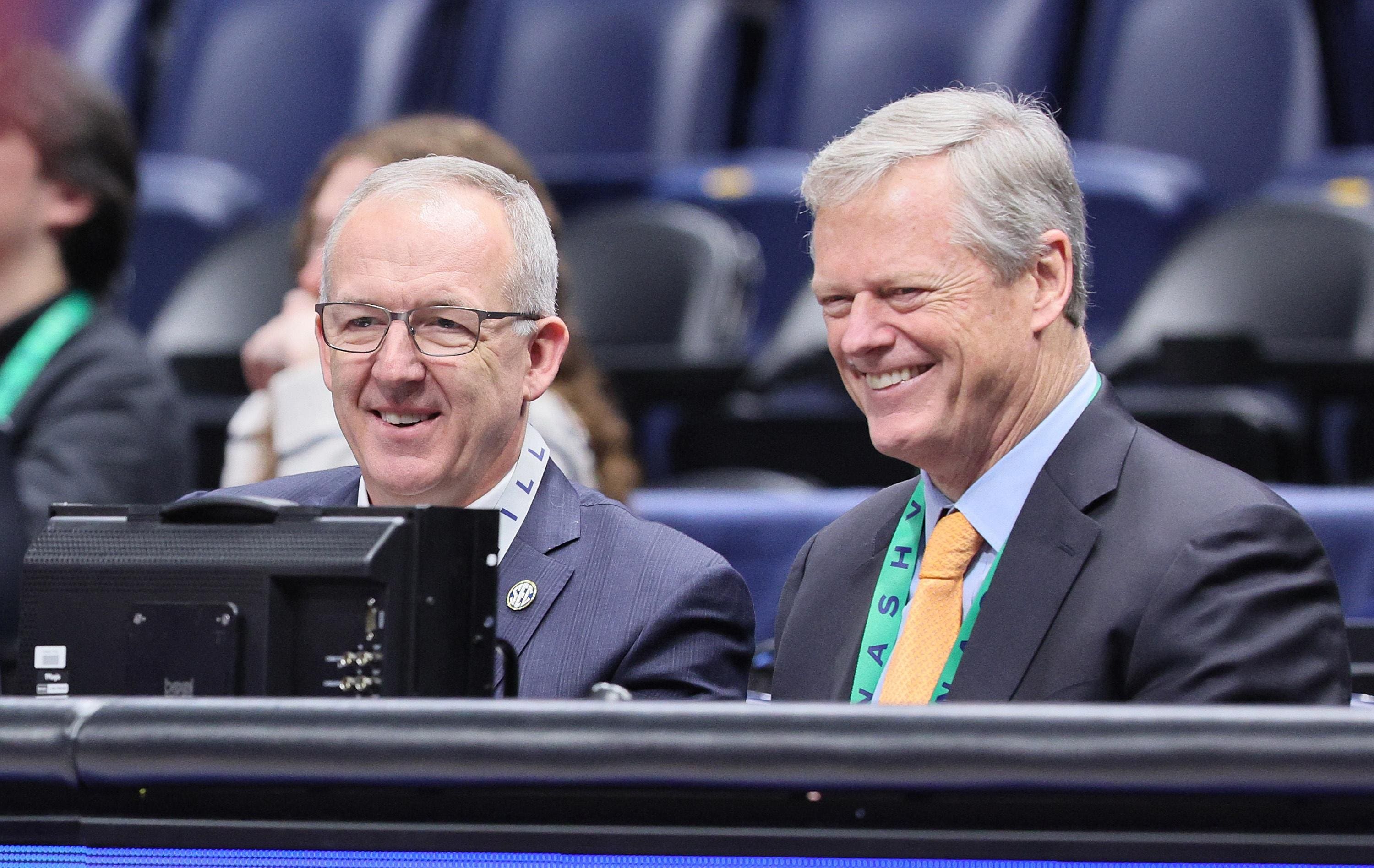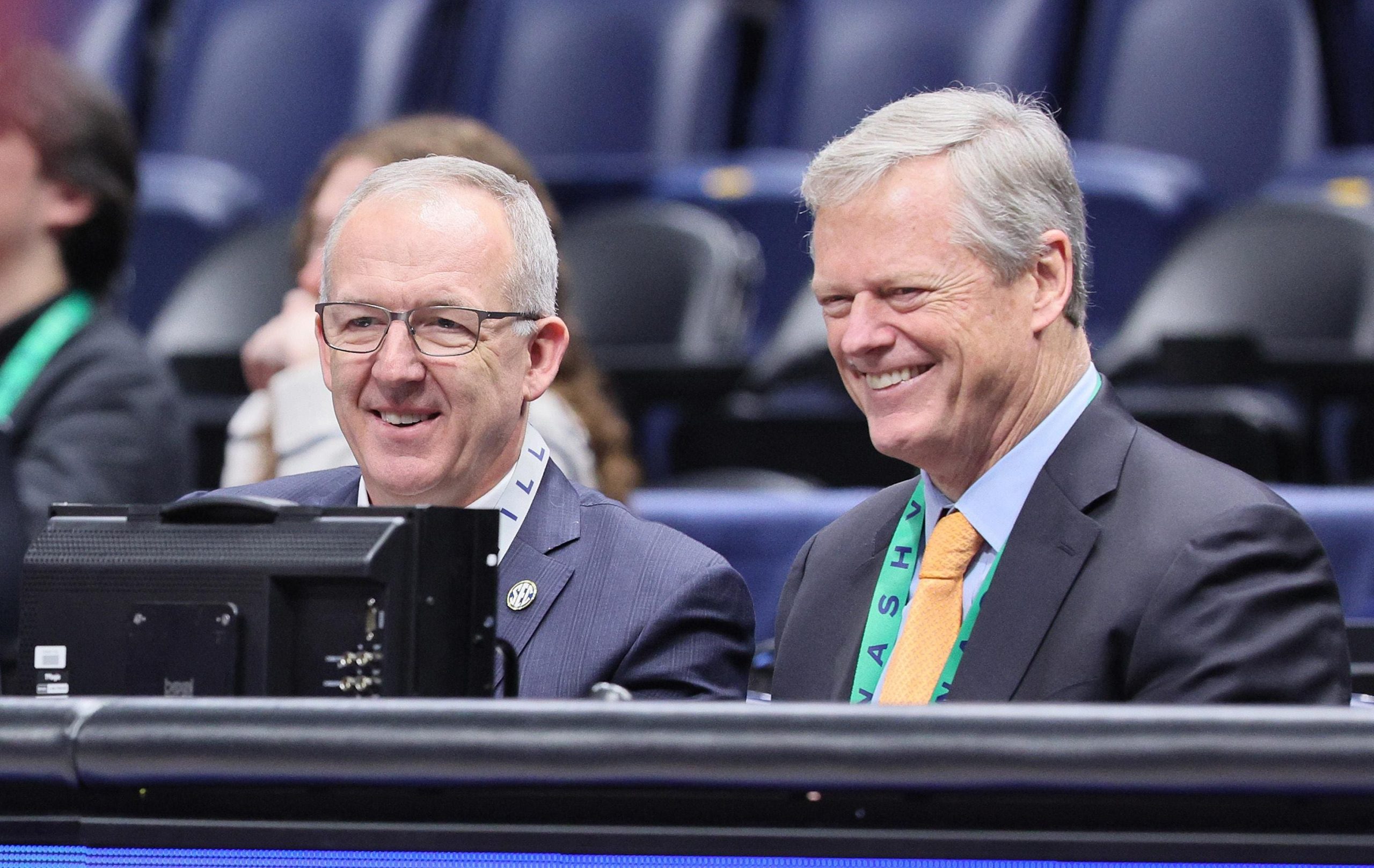
In a series of eye-opening comments made last week, NCAA President Charlie Baker hinted at several potential new college sports revenue streams. At an event titled “The Future of College Sports” in Washington, D.C., he shared some insight as to where he that money will come from.
The NCAA brings in less than $1 billion annually via men’s basketball March Madness media rights, tickets and sponsorships. With the College Football Playoff projecting $1 billion in new monies for just the Division I FBS teams and leagues participating in that postseason event, the financial gap will only widen unless the NCAA can kick in more money.
Baker believes the organization has financially underperformed, and he is considering some controversial options, including monetizing sports betting relationships. “That’s a major opportunity, right in front of us”, he told the audience of industry insiders. “We have a major opportunity to get into the sports betting space … anybody who has a phone (being) able to bet from any place they want and two-thirds to almost three quarters of all people between the ages of 18 and 22 betting on sports”, he told the audience. His comments surrounding gambling revenue opportunities raised eyebrows in the room.
March Madness is one of the most active betting events on the sports calendar, with about 68 million betting on the 2023 men’s basketball tournament alone. “It’s (betting) a major opportunity, right in front of us. We have a major opportunity to get into the sports betting space and recognize and understand between social media … anybody who has a phone being able to bet from any place they want and two-thirds to almost three quarters of all people between the ages of 18 and 22 betting on sports”.
According to the American Gaming Association, 33 states plus the District of Columbia currently permit sports betting.
“The truth is, if there are lots of kids on campus betting on college sports and betting on the teams on their campus, this puts student-athletes in a very difficult position. … (The NCAA needs to) create a program that we hope we’re going to get everybody to endorse around helping them develop the tools and techniques (athletes are) going to need to deal with this stuff.”
While many college sports fans believe he has spent most of his time in Washington lobbying lawmakers for a federal bill that could place guardrails around name, image and likeness, Baker pushed back. He said he’s spent a fair amount of time in Indianapolis; in fact, he had hoped to meet with all 130 athletic conferences in his first 100 days and was disappointed to report he had “only met with 97”. He also complained loudly about the organization’s cumbersome committee structures, saying “we have about 180 committees and 1,800 committee members”.
Consensus is building to place other NCAA sports “out to bid” individually first, with women’s basketball, and then, in some configuration, women’s softball, baseball, women’s volleyball and other sports audiences. “We dramatically underperform across a whole bunch of other revenue raising opportunities. … And those items are going to get a lot of attention from us over the course of what I would describe as the next four to six months.” The NCAA leader made it clear he was not going to reveal his strategy anytime soon.
When asked by a writer about the practice of selling athlete data as part of a leveraged package for media and gambling companies, he seemed taken aback. The NCAA does not (currently) permit athletes to “opt out” of having their performance data aggregated in both media and gambling contracts. Athlete data is what is driving some of the growth in these new contracts, as some professional sports have recognized in their union contracts. When quizzed about the personal data collected on his Apple Watch and if he could “opt in or out” of having it collected (he said “I think so”), he did not acknowledge the ethical quandary the NCAA creates because athletes aren’t given that option with their performance data. As a new leader who many are willing to give the benefit of the doubt, it would be a huge step forward to ask the athletes who should be able to access and sell their data.
There is no doubt Charlie Baker has a full plate. The organization he inherited is in disarray and needs clear direction. New revenues will be welcome at a time when higher education is struggling. Careful, measured analysis needs to lead the discussion as, once again, the pressure on athletes and coaches to deliver will continue to grow. Alongside the significant issues surrounding NIL, these other challenges are no less important and bear watching closely.
